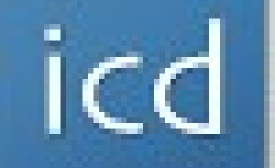Cultural Diplomacy
The flurry of attention that the girl bands Girl’s Generation and Wonder Girls got in South Korea for making appearances in the U.S. earlier this month suggested that Korea’s pop culture was cracking the U.S. more than it really is.
It started as a humble DJ session in a Bangkok bar. A few years later, it has traveled to Japan and Europe, spawned two CD compilations on international labels, and transformed into a biannual showcase starring some of Thailand’s most important musicians.
The most successful cultural diplomacy strategy integrates people to people or arts/culture/media to people interactions into the basic business of diplomacy. The programs in Afghanistan, Egypt, and Iran all contribute to core goals of U.S. policy in those countries. Each succeeds by empowering local voices, rather than by conveying ideas through American emissaries.
This film presents an open door for the global audience to become involved in the Bahá'ís education advocacy movement in Iran. Awareness of the persecution these students face is a critical first step. The Education Under Fire campaign skillfully utilizes documentary filmmaking as a public diplomacy tool to address the needs of the Bahá'í in Iran.
APDS Blogger: Karen Calderon
On February 3rd, 2012, the USC School of Cinematic Arts held a screening for “Education Under Fire,” a film that provides a provocative insight into the lives of Bahá'ís in Iran who lack access to the country’s education system.

A breakthrough in the final hours of Xi Jinping's US tour has eased restrictions on imports of US films into China, and could lead to more 3D and Imax films being made in Hollywood...For Chinese, "more US movies may force domestic producers to take a correct attitude toward their works and learn from others."
China has agreed to open its market to more US films and provide better terms to US studios. "This agreement with China will make it easier than ever before for US studios and independent filmmakers to reach the fast-growing Chinese audience, supporting thousands of American jobs in and around the film industry," US Vice-President Joe Biden said in a statement.







